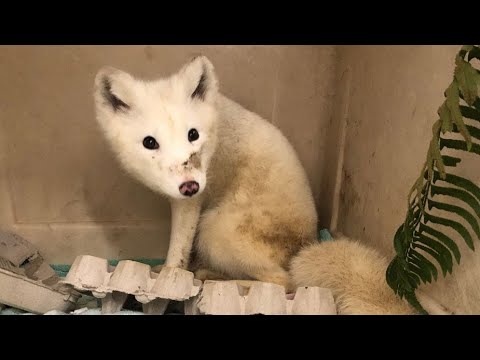Arctic fox found wandering Portland was likely raised in captivity
2 min read
An Arctic fox that shouldn’t even be in this part of North America is being cared for after being found over the weekend in Portland. A wildlife rehabilitation group is now caring for her and sharing photos of the animal.
Bird Alliance of Oregon posted on Facebook that the fox was brought to into the Wildlife Care Center on Saturday and that its clear that it has been around humans for a long time.
"While we don’t have information yet on where the Arctic fox came from, or how she got to Portland, we believe the animal has only known a life of captivity. The fox doesn’t show a species appropriate fear response to people, and was actually approaching humans when rescued," the group posted on Facebook.
The group says the native habitat for the Arctic fox is Greenland, Iceland, Svalbard, northern Russia, islands in the Bering Sea, Alaska, and Canada, and other northern locations.
It was clear that the animal was unable to care for herself.
"We believe the fox either accidentally escaped from captivity or was intentionally dumped by the people who illegally held her," Ashley Lema, Wildlife Care Center Manager, wrote on Facebook. "After a few days of being on the loose, the female fox was desperate enough and approached a person for help, as it’s likely that humans have provided her food her whole life. Not only is she in the wrong habitat, but she just doesn’t have the skills necessary, like hunting, to survive in the wild. We’re thankful the good Samaritan brought her to the Wildlife Care Center so we could safely house her while the Oregon Department of Fish and Wildlife determines next steps."
After an exam, the Wildlife Care Center determined the fox was thin and dehydrated, weighing about 6 1/2 pounds, but otherwise in good health.
"Unfortunately this Arctic fox’s story is all too common," Lema wrote. "Wild animals aren’t pets, and treating them like domestic animals isn’t just dangerous for people, but it’s often a death sentence for wildlife. Even if they are rescued or removed from captivity, the animal will never be able to return to the wild."
Author: Central Oregon Daily News
Go to Source
News post in at: October 17, 2024, 3:03 am.
Visit Our Sponsor’s:
News.Science – News Science






